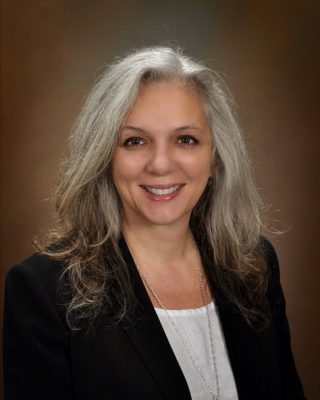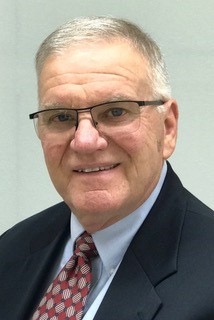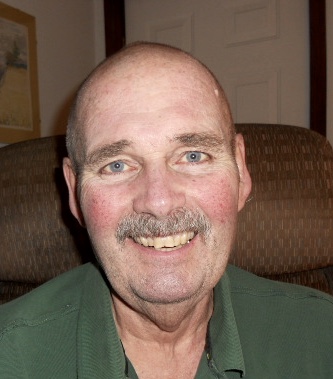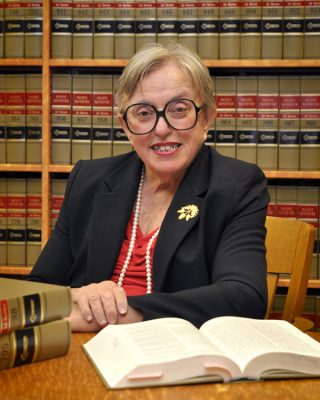To read the full transcripts of the candidates’ answers click here.
Deborah “Brandy” Sullivan — Four-year term

Brandy Sullivan, a commissioner on the Moscow Urban Renewal Agency (URA) and owner of One World Café, has lived in Moscow for 20 years.
In her work with the URA, she has helped to support the creation of a bicycle and pedestrian path to provide a direct connection between the university and downtown.
“I support locally owned businesses that provide services to and welcoming spaces for students, faculty and staff,” Sullivan said. “Development downtown should be inclusive and open to the general public.”
In regard to infrastructure, Sullivan said future development should involve public input to ensure the vision of residents is met.
“Moscow also should look for opportunities to expand the current public transit system, in order to reduce congestion and our carbon footprint,” Sullivan said.
Sullivan said there are several options to provide affordable and quality housing to University of Idaho students and young professionals. She said she would work with the Fair and Affordable Housing Commission to possibly provide local tax credits and incentives to affordable housing developers, and establish developer fees to include some percentage of their project as affordable housing.
Sullivan said she would like the city to reach out to the local PFLAG organization and reinstate the annual CommUnity Walk to bring a sense of unification back.
“The recently passed friendly and diverse community ordinance was a good step, however I believe it didn’t go far enough,” Sullivan said. “I would attempt to amend the ordinance to include the full recommendations that were brought forward by the Human Rights Commission.”
Sullivan said she would like for Moscow to establish an ordinance to help protect immigrants eligible for deportation aid. She said one’s immigration status should not be questioned unless lawfully required in court orders and subpoenas and in cases of criminal activity or threats of violence.
Walter Steed — Four-year term

Walter Steed has served on the Moscow City Council for the past 10 years and served on the Transportation Commission for nine years before that.
Steed has been a self-employed consultant, and provided grant writing and project management services to cities and districts with public works projects for the last 36 years.
“I have a sound record of making steady, mindful and common-sense decisions that, I believe, profit the community,” Steed said.
Steed said the prosperity of the community and the university are tied closely together. He said will support development that will encourage the increase of UI enrollment.
“The City has worked hand in hand with the University to make downtown more accessible and attractive to students and it is because of them that we have the most vibrant downtown in the quad cities of Lewiston, Clarkston, Pullman and Moscow,” Steed said.
He said the city, with the Fair and Affordable Housing Commission, has continuously worked to provide affordable housing in the area by rezoning areas to allow duplex rentals that are attractive to students and young professionals.
Steed said he finds the Moscow community to be very inclusive to all Moscow residents.
“Six years ago, the City passed an ordinance against LGBT discrimination in Moscow,” Steed said. “We welcome all who will run for office, all who are willing to serve on its commissions and all to join and become a board member of the many service organizations in our community.”
Steed said Moscow’s Comprehensive Plan provides a system for transportation that extends streets and pathways to ensure safe access for all modes of transportation.
“As the street, pedestrian and pathway network is improved and expanded, the City will use transportation investments to leverage economic development, improve human health, and preserve community character,” Steed said.
Achieving these goals, Steed said, will enhance Moscow’s economic development and its attractiveness to future residents, visitors and businesses.
Arthur Bettge — Four-year term

Art Bettge, a University of Idaho alumnus, said he has lived in Moscow for 37 years. He worked on the Moscow Planning and Zoning commission for 10 years and was elected to city council four years ago.
“I really want Moscow to continue to grow and flourish and to be a city with a sense of itself as a unique place to live and work,” Bettge said. “I want to expand Moscow’s ability to provide good employment, with upward mobility potential while still retaining an environment where people can have rewarding lives.”
Bettge said developments like the Legacy Crossing would provide an urban living experience for UI students with easy access to restaurants, shopping and social areas. He said this sort of development would also bridge the gap between the university and downtown.
To bring more affordable housing to Moscow residents, especially students, Bettge said he would like to work with financial institutions to provide flexible loan options to homebuyers.
Increasing the density of upward apartment buildings, will also assist in affordability, he said.
In order for transportation infrastructure to develop, Bettge said motor transportation services will need to become more flexible and readily available as Moscow grows. Extending the SMART Transit routes and hours, he said, would help provide this expansion.
Bettge said he is committed to the “Welcoming City” resolution passed in February, as it provides a sense of direction for the community.
“However, education and a commitment to make this attitude intrinsic to the community will be an on-going effort,” Bettge said.
He said with this in mind, Moscow city government and its citizens are committed to inclusivity and equal treatment for everyone.
Although Moscow is legally limited to help immigrants eligible for deportation aid, Bettge said Moscow community members are entitled to the same benefits and responsibilities as anyone else. He said asking about one’s citizen status should not become practice merely based on perceived origin or appearance.
Angela “Gina” Taruscio — Four-year term

Taruscio said she is a long-time Moscow community member and a UI Vandal.
“I am running for City Council because I want to help guide the future of my hometown,” Taruscio said.
In supporting the university, Taruscio said the annual Vandal Town Block Party and increased opportunities for internships have helped connect the Moscow community to UI.
“Supporting the University isn’t limited to downtown- in fact, we have worked for the past four years to build the strong relationships that are key to everyone’s success — and the UI-City of Moscow-Latah County relationships are very strong and I am proud to have been an integral part of that effort,” Taruscio said.
Taruscio said it is the responsibility of the Fair and Affordable Housing Commission to listen and to consider suggestions for changes in policy.
With growth comes new infrastructure, and Taruscio said she would like to see the transportation infrastructure in Moscow’s SMART Transit extend its hours. She said she would support additional funding for SMART Transit as budget allows.
“I would like to see the hours of operation and the routes expand as access to goods and services makes the economic future of Moscow vital and exciting,” Taruscio said.
Moscow, Taruscio said, is a very inclusive community. She said it is important the Moscow police remain visible to students and those looking to access a safe, inclusionary space.
“I believe that it’s incumbent upon us to fund our police force adequately to ensure that discrimination and bullying and harassment can be reported and dealt with sufficiently,” Taruscio said.
Althoug deportation is a federal issue and outside the purview of local government, Taruscio said Moscow welcomes all visitors and residents.
Robb Parish — Four-year term

Robb Parish, a University of Idaho graduate and former director of the Moscow-Pullman Regional Airport for 11 years, is a city council member and retiree who is a member of the city’s planning and Zoning Commission.
“After graduating from UI I spent 25 years in Federal service and moved back to Moscow upon retirement,” he said. “I managed the University’s Business Technology Incubator for three and a half years.”
Parish said he wants to expand development of the area between the university and downtown, Legacy Crossing, that will include mixed use property and housing close to campus. He said he also aims to encourage building more affordable housing by enacting zoning ordinances. These ordinances, he said, will provide for more dense housing and make the use of “tiny homes” more plausible.
He said he wants to continue to make the city welcoming to all students.
“Students are a significant part of what makes Moscow the special and unique place that it is,” Parish said. “Much of that quality is because of the continual and very positive cycle of renewal that begins in the fall of every year.”
Parish said he believes the city’s current response to deportation aid “is balanced and fair.”
He said he will support the enhancement of non-motorized transportation, as well as the addition of public transit routes.
“The two most important components of the City’s transportation infrastructure that directly impacts UI students are public transportation and pathways for bikes and walking,” he said.
John Weber — Two-year term

A UI graduate and 62-year Moscow resident, John Weber has served on the Moscow City Council for two terms, amounting to eight years. Weber has been a member of the Urban Renewal Agency since its inception in the early 2000s.
During his time in Moscow, Weber has been a small business owner, a Latah County Sheriff Deputy and has been in car sales and beer sales.
Weber said he would like to see the community grow in relation to stronger, more developed retail businesses near UI’s campus, which will create a connection between the university and Moscow.
More growth means more choices, and Weber said he supports housing growth.
“The more apartments and duplexes available for residents means there are more choices, which means rental rates would be more competitive,” Weber said.
With the growth of the Moscow community and the university, Weber said a need for more bus routes will become apparent.
“The majority of Moscow’s public transportation costs are covered by Federal Government grants, that would need to expand as the population grows, Weber said.”
To bring inclusivity to Moscow, Weber said the UI admissions policy has helped to create an open and non-discriminator community. He said all Moscow public areas should be the same.
Although he said matter of immigration falls to the federal government, Weber said he supports the human rights and legal rights of any resident.
Anne Zabala — Two-year term

Anne Zabala said, as a recent UI graduate, she is running in the hopes it will help other young people in the Moscow community to be represented through the Moscow City Council.
“I decided to stay here after college because I love it here and I want to continue building on everything that already makes Moscow a wonderful place to live,” Zabala said.
To support the university, Zabala said she wants to see the continuation of the thriving downtown area that fulfills the needs of students for shopping, working and studying.
“For my friends and I, the University’s proximity to campus made it easier to interact with and contribute to the community,” Zabala said. “I want to see us preserve this for many more generations of students.”
Housing is an issue close to Zabala’s heart. Before starting her college career and throughout her college experience, Zabala said she struggled with housing insecurity and had her fair share of negative experiences with Moscow landlords.
“I want to see us explore ways that we could prevent another White Pine scenario that left many renters with unreturned security deposits and little recourse to receive their money back,” Zabala said. “I want to see landlords held to a higher standard.”
As a first-time homebuyer and a Fair and Affordable Housing Commissioner, Zabala said she will work to secure more affordable housing and plans to provide information and resources to those in her same position.
In regard to creating an inclusive community for potential UI community members, Zabala said she is proud Moscow passed its own LGBT non-discrimination ordinance six years ago, even though that is not the case for all of Idaho.
“I would like to see our city continue building a relationship with the Idaho Legislature so that we have the ability to set policy that reflects our values,” Zabala said.
As a continuation of the views she has for Moscow’s stance on non-discrimination, Zabala said she will continue to investigate the effectiveness of self-designated sanctuary cities and follow the legislatures response to these changes.
“I am interested in determining the best way we can protect immigrants in our community and continuing to raise awareness around current services like the UI Immigration Clinic,” Zabala said.
Bill Lambert — Mayoral Candidate

Mayor Bill Lambert, a Moscow resident for 40 years, is running for reelection to continue leading a vibrant, safe and collaborative Moscow as mayor.
“We have created an organization that is taking us into the future,” he said, “and, at the same time, keeping our city the quaint community that we all cherish.”
He said the “Hello Walk,” in the portion of town between downtown and the University, will help to connect the University of Idaho and downtown. The connectivity, fostered through the Legacy Crossing district of Moscow, will be good for the university and the city, Lambert said.
Regarding housing for students and young professionals, Lambert said he believes the availability and pricing of housing in the city are driven by the free market. If there were too many houses, the prices would be lower to reflect the oversupply, he said.
The city can ensure Moscow builders and landlords follow state building codes, he said.
Lambert said he is proud of the passage of the resolution 2017-03, which declares Moscow “a friendly and diverse city where all residents and visitors feel welcomed (and) safe.” He said the diversity in ideas and perspectives new residents bring are crucial to the community.
“It is our policy that no person be denied protection under the law. Nor shall any person be discriminated against because of his or her identity,” he said.
Lambert said he wants to look into adding a route to the Smart Transit system, which currently only has two routes which travel through the East and West sides of town. The additional route would travel form the North to the South.
“Moscow’s transportation should include connectivity throughout our city,” Lambert said. “Access to all forms of transportation is vital whether that is biking, walking or vehicle transportation.”
Linda Pall — Mayoral Candidate

Linda Pall, with 18 years of city council experience, is a human rights and family law attorney.
Pall, a graduate of the UI College of Law, has practiced law for 32 years and was an associate professor of business law at Washington State University.
She said she wants to support development between the university and downtown, such as a hotel or grocery store.
The city’s public service first responders should treat all residents equally, she said.
“It is critical that the goodwill and understanding of university students be mobilized in the larger community to take the message of inclusion to all of Moscow,” she said.
She said it is important for the mayor to show support for DACA eligible people in the community.
“Individually and organizationally we must stand up for these individuals who are placed in terrible circumstances,” Pall said. “We must show the entire community and the rest of the state and nation, that we are still a nation that recognizes the value immigrants bring to the U.S.”
Improving public transit and the connection between Moscow and Pullman are among Pall’s infrastructure goals. She said she wants to include more bus stops and a bus schedule that includes community events.
To read the full transcripts of the candidates’ answers click here.